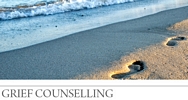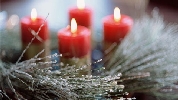|
|
 Acne (1,500) Acne (1,500)
 Addictions (1,500) Addictions (1,500)
 Advice (1,500) Advice (1,500)
 Allergies (1,092) Allergies (1,092)
 Alternative Medicine (1,500) Alternative Medicine (1,500)
 Anti Aging (1,500) Anti Aging (1,500)
 Breakup (1,500) Breakup (1,500)
 Cancer (1,499) Cancer (1,499)
 Dental Care (1,500) Dental Care (1,500)
 Disabilities (1,500) Disabilities (1,500)
 Divorce (1,500) Divorce (1,500)
 Elderly Care (1,498) Elderly Care (1,498)
 Goal Setting (1,500) Goal Setting (1,500)
 Hair Loss (1,500) Hair Loss (1,500)
 Health and Safety (1,497) Health and Safety (1,497)
 Hearing (1,500) Hearing (1,500)
 Law of Attraction (1,499) Law of Attraction (1,499)
 Marriage (1,500) Marriage (1,500)
 Medicine (1,497) Medicine (1,497)
 Meditation (1,499) Meditation (1,499)
 Men's Health (1,500) Men's Health (1,500)
 Mental Health (1,500) Mental Health (1,500)
 Motivational (1,500) Motivational (1,500)
 Nutrition (1,495) Nutrition (1,495)
 Personal Injury (1,499) Personal Injury (1,499)
 Plastic Surgeries (1,500) Plastic Surgeries (1,500)
 Pregnancy (1,496) Pregnancy (1,496)
 Psychology (1,500) Psychology (1,500)
 Public Speaking (1,500) Public Speaking (1,500)
 Quit Smoking (1,500) Quit Smoking (1,500)
 Religion (1,499) Religion (1,499)
 Self Help (1,500) Self Help (1,500)
 Skin Care (1,500) Skin Care (1,500)
 Sleep (1,500) Sleep (1,500)
 Stress Management (1,500) Stress Management (1,500)
 Teenagers (1,492) Teenagers (1,492)
 Time Management (1,500) Time Management (1,500)
 Weddings (1,500) Weddings (1,500)
 Wellness (1,500) Wellness (1,500)
 Women's Health (1,500) Women's Health (1,500)
 Women's Issues (1,500) Women's Issues (1,500)
|
Lighting
Having any form of light in the bedroom can affect the pineal glands from producing melatonin and serotonin, compounds in the body necessary for sleep. The room should be pitch black or as close to it as you can get. Turn off the TV and computer, shut the blinds, close the door, and avoid having a lighted alarm clock or cell phone nearby.
Bed
Having a bed that fits your comfort needs can lead to longer, uninterrupted, and better quality sleep. Be sure the bed is sized to fit you, it has the right firmness for your liking, that you have comfortable pillows and blankets, and that there are no noises when you move- like squeaking or banging of the headboard. Also, be sure to keep your bed for sleeping purposes only. Do not watch TV, eat meals, or do work while lying in bed. If not, it will cause you to stop associating your bed with relaxation and sleep making it more difficult to doze off when it is bedtime. Temperature
Having your thermostat set between 62 and 70 degrees creates the perfect temperature for sleep. If it is too hot or too cold, you run the risk of waking up from the uncomfortable rise or fall of your body temperature. Some people do good sleeping with a fan on but be sure it is not a noisy one. Properly installed ceiling fans tend to work best since they distribute the air throughout the room and not just one direct spot.
Noise
Avoid loud music or television. If you prefer white noise, the sounds of ocean waves, rainfall, or a summer breeze, use a sound machine or relaxation CD.
Clothing
Wear soft loose clothing that keeps your body at a comfortable temperature when under the sheets or blankets. As previously discussed, being chilly or overheated can disrupt your sleep. Studies show that your feet have the poorest circulation out of your whole body so they tend to get cold fast. Covering them with socks or footed pajamas while you sleep will reduce the chance of night wakes.
Food and Drink
The amount and type of food and drinks in your stomach can determine how well you sleep. You want to make sure you are not hungry or thirsty but that you have enough time to digest what you ate. Eating sugars, grains, or caffeine before bed can prevent your body from relaxing enough to rest. Try to eat protein 2-3 hours before bedtime. It provides L-tryptophan which helps promote sleep. Also, avoid drinking liquids within 2 hours of bedtime and be sure you use the bathroom before bed so you do not wake up having to pee.
|
|
|



